Abstract
Cloud computing revolutionizes IT resource management by delivering services on demand over the Internet with a pay-as-you-go model. This project investigates and implements several Amazon Web Services (AWS) including EC2, RDS, S3, Lambda, and CloudFront. The study involves deploying these services across three environments: physical servers, cloud virtual servers, and serverless architecture. Findings reveal that AWS Lambda provides substantial cost savings—88.6% less than cloud virtual servers—along with faster deployment, 82% higher load tolerance, and 42% quicker response times compared to physical servers. These results highlight the efficiency of serverless environments and offer valuable guidance for optimizing cloud application deployments.
Introduction
Cloud computing is the delivery of IT resources on demand over the Internet with a pay-as-you-go pricing model. Instead of buying, owning, and maintaining physical data centers and servers, you can access technology services like computing power, storage, and databases as needed. In recent years, cloud computing has revolutionized the computing industry, fundamentally changing how resources are used, and altering the structure of operations, as well as the storage, distribution, and processing of information. Most of us are already using one or more cloud computing services in our daily lives and business management. Keeping up with new technology is crucial in today's technological age. Cloud computing is a technology supported by many, and in Vietnam, it has seen some initial successes. Although predicted to be a technological 'tsunami' globally, cloud computing in Vietnam is still in its early stages. Based on these factors, researching the topic 'Exploring and Implementing Various Services on Amazon Web Services Cloud Infrastructure' is essential.
Proposed Method
The proposed model is described in Figure 1. The e-commerce application will be deployed across three environments, arranged from top to bottom. The first environment is deployed on a physical virtual server using the Linux operating system; the second environment is deployed using Amazon EC2 and Amazon RDS services on the cloud computing infrastructure; the final environment is deployed using serverless technology with Amazon Lambda and Amazon RDS.
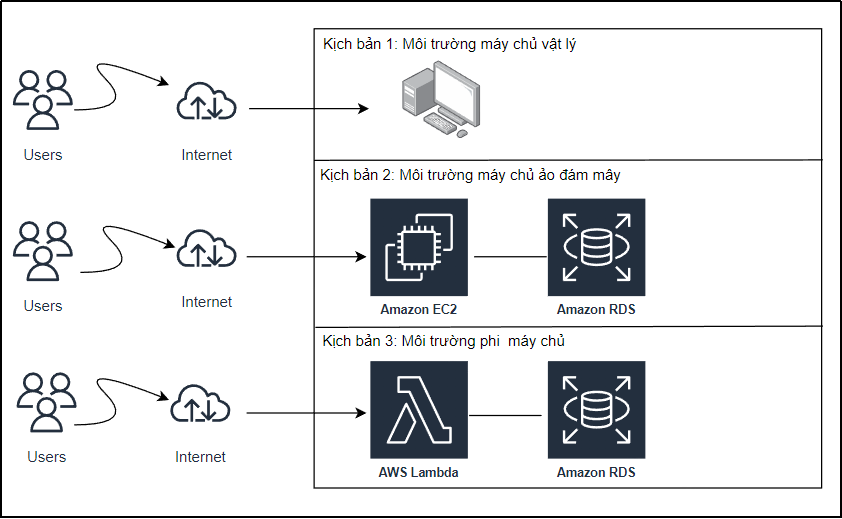
Physical Virtual Server Model: This model is deployed with a physical virtual server where all tools and software are installed on a single server.
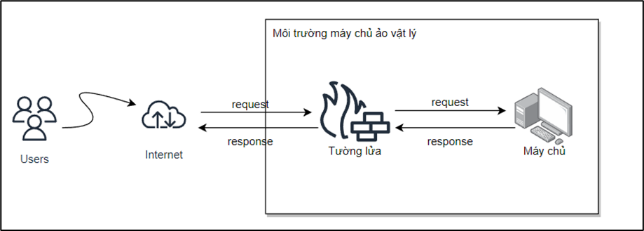
Single Virtual Server Model on AWS: This model is implemented using the Amazon EC2 virtual server service in combination with Amazon Auto Scaling to scale up or down the number of servers based on predefined policies, along with Amazon RDS and Amazon S3 services.
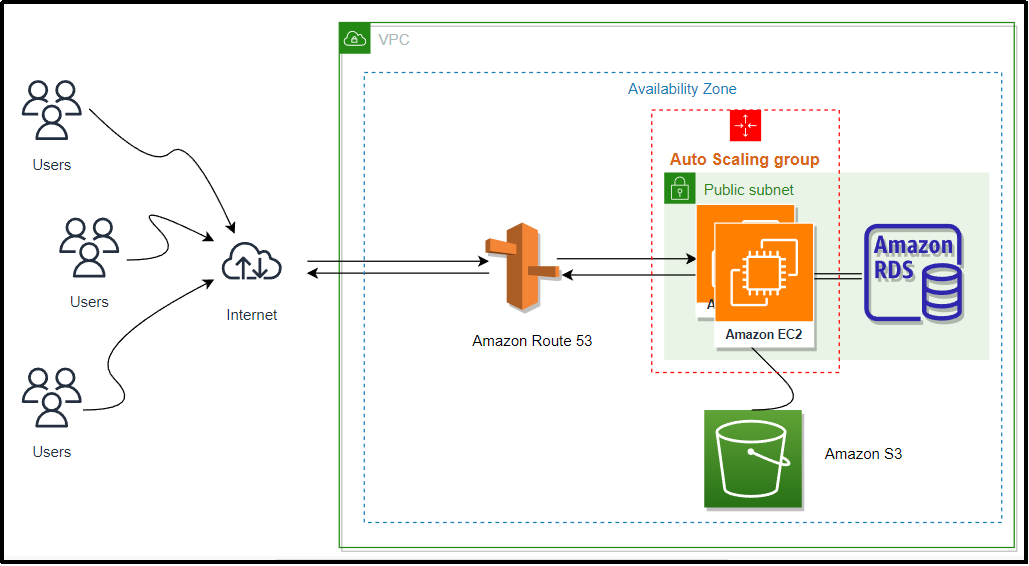
Serverless Model on AWS: This model is deployed with N x Lambda Functions, Amazon RDS, and Amazon S3 services.
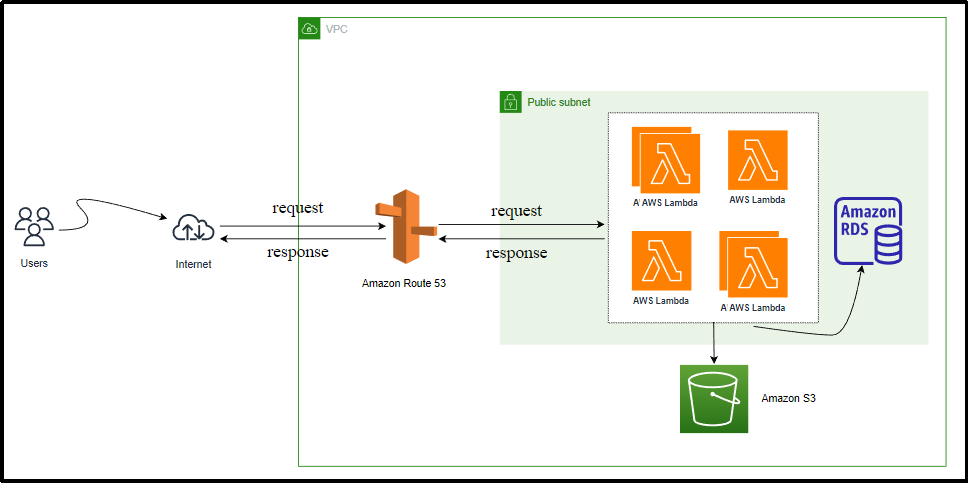
Results
The results of the deployment scenarios across the three experimental environments will have the following information.
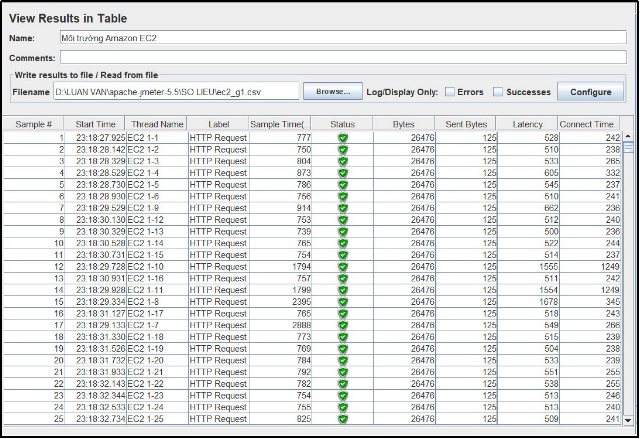

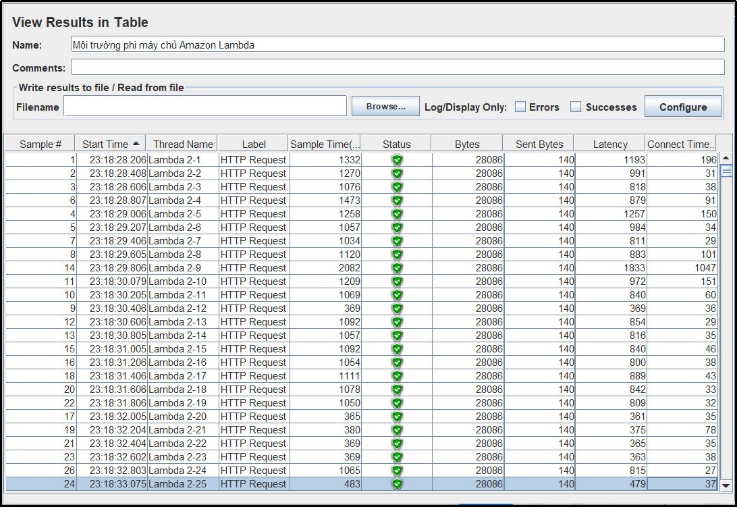

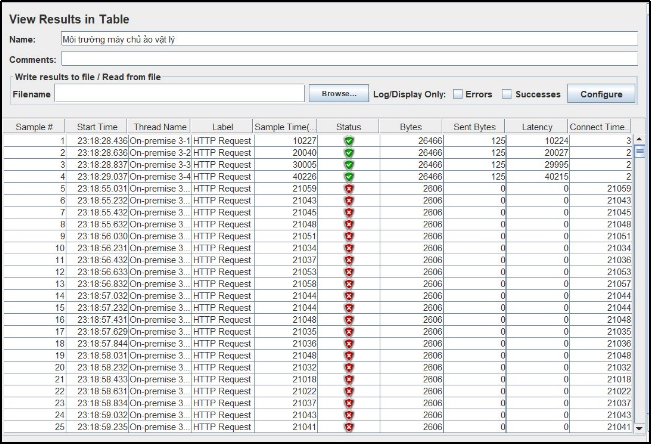

Conclusions
This project explores and implements various services on the Amazon Web Services (AWS) cloud infrastructure, including Amazon EC2, Amazon RDS, Amazon S3, Amazon Lambda, and Amazon CloudFront. The research involves deploying and experimentally comparing these services across three different environments: physical servers, cloud virtual servers, and serverless architecture. The findings indicate that deploying e-commerce applications on AWS Lambda offers significant advantages in terms of cost efficiency, with a reduction of 88.6% compared to cloud virtual servers. Moreover, the serverless environment demonstrated a faster deployment time, 82% higher load and fault tolerance, and 42% quicker response times compared to physical servers. These results provide valuable insights for selecting the optimal environment for application deployment on cloud computing platforms.
References
- Amazon Web Services Documentation, https://docs.aws.amazon.com, truy cập 05/12/2022.
- Bref Documentation, https://bref.sh/docs/, truy cập 05/12/2022.
- John Culkin & Mike Zazon, AWS Cookbook: Recipes for Success on AWS.
- Scott Patterson, Learn AWS Serverless Computing: A beginner's guide to using AWS Lambda, Amazon API Gateway, and services from Amazon Web Services.
- Brett McLaughlin, AWS Certified Solutions Architect Practice Tests.
- Michael Wittig & Andreas Wittig, Amazon Web Services in Action.